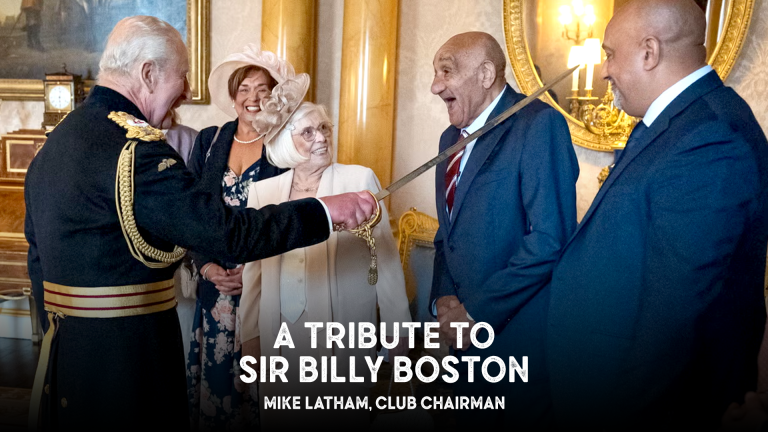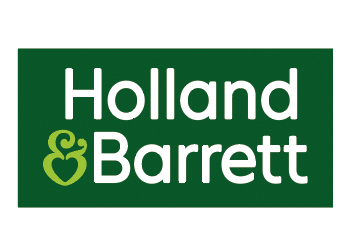There are certain sportsmen that transcend club rivalries and elicit respect and adoration from all followers of the sport. Tom Finney, Bobby Charlton, Nat Lofthouse in football, Ian Botham and Andrew Flintoff in cricket are some that come immediately to mind. In Rugby League the obvious pick is Billy Boston.
There’s a ritual before each home Wigan game that shows the awe and respect with which he’s held. He arrives with family in the directors’ car park and makes his way to the main entrance, immaculately dressed in Wigan blazer, Wigan club tie, smart white short, stylish overcoat.
Billy is 90 these days, racked by the horrible affliction of dementia, a disease of which I’m all too familiar through my late mother. But he still exudes an incredible aura. He’s mobbed for photos and autographs, responding to each request with kindness and grace. Even the scruffiest street urchin from Norley Hall treats him like a King.
Many of the people who meet him have never seen him play, but most have grown up on tales passed through generations of ‘Billy B’ and his incredible try-scoring feats in the Cherry and White at Central Park.
When Wigan Warriors return to the Brick Community Stadium next Friday (11 July) for their first home game since Sir Billy became the first Rugby League player to be knighted, it will be one of the greatest days ever in the history of the famous old town. It’s one not to be missed.
Deep in the recesses of my loft I’ve an old tape recorder and some cassettes, many ravaged by age. It’s incredible to think that not long ago, before the digital age, we used these to record programmes this way, songs and memories. A long search later, through the spiders’ webs and dust from our roof repairs, I found it. The tape of when Billy Boston was my guest on the radio show I used to host on BBC Radio Lancashire.
It was a two-hour special, Billy accompanied by his great friend and former teammate Colin Clarke. Incredible to think it was 2005, twenty years ago. I saw Colin recently at a function to open Brian’s Den, a beautifully appointed room at the nursing home where the highly respected former Leigh chairman Brian Bowman spent his final years. The Den was in Brian’s honour, decorated with photos and mementos of a life immersed in Rugby League.
Colin was coach alongside team manager Alex Murphy when Leigh last won the championship in the 1981-82 season, and we reminisced about that wonderful season. Colin’s memory is crystal clear, and we soon go on the subject of that day in 2005 when Rugby League royalty visited Blackburn and the Radio Lancashire studios. Listening to the tape brought back so many memories.
My catchphrase for the show was: “Great guests, great chat and the subject – the greatest game of all.” That night it certainly was. “Rugby League is a fantastic game- it is the toughest and most physical and most exciting of games and the players are so skilful, brave and down-to-earth,” I had told the radio website. “They are not ‘Billy Big Times’ like so many soccer players and are willing to travel to Blackburn or come on the telephone and spread the word.
“Coaches, administrators, referees, former players and journalists also all happily give their time to come on the programme and hopefully the show has become established not just in the Radio Lancashire area but further afield. But it always amazes me when the toughest of players, used to slugging it out on the field, are sometimes reduced to a shivering wreck when they experience live radio for the first time. We go around the year, 52 weeks a year, and it’s a huge privilege and a lot of fun to be able to spread the word.”
Before the show I’d meet the guests and chat through what we were going to talk about over a radio station coffee. Colin and Billy adopted a different approach. They got a lift, arrived in good time and insisted we repaired across the road to the Postal Order for a’ quick pint’ to settle the nerves. A quick pint became four pints apiece for them before we went back for the 7pm start, as lucid and relaxed as ever. For the next two hours the tales flowed and the time sped by. Of all the shows I did over the 12 or 13 years I hosted this was the highlight. After the show back to the Postal Order we went, another four pints apiece for Colin and Billy and I gave them a lift home, reluctantly saying good-bye. It was the sort of evening you want to go on forever.
Colin played the supporting role, eager to pass on the accolades to his friend. “I was a hooker, and it was my job to get the ball and ensure Billy got the opportunities,” he said. “We all played second fiddle roles to him. If Billy got the ball, he did the rest, and we were guaranteed winning pay. He was a fantastic player. The best.”
Billy, shy and quiet at the start, soon settled into the programme. The insights he gave on playing the game revealed he was a deep thinker about the sport. Above all I remember his grace and modesty. “For all I have achieved in Rugby League I’d have given it all up for one rugby cap for Wales,” he told me, showing the deep sadness he felt about the prejudice in his native south Wales. “When I first decided that I was coming to Wigan I burst into tears. I wondered what was ahead of me and knew I’d given up any hope of playing for Wales.
“But I immediately realised I would get the ball in hand a lot more than playing union and the warmth and friendliness of the local people made me quickly settle in. I found Wigan to be a real community town, based around family and values and not dissimilar to the close-knit area of Cardiff I left. That family spirit bred loyalty. It was because of that I was able to settle. I don’t think I’d have managed that anywhere else.
“People were so welcoming and my teammates at Wigan made me feel at home. Jack Broome was one player who helped me enormously when I first arrived, helping me learn the game and understanding my role. There was a tradition of Welsh players coming to play for Wigan and so people saw me in that light.
“I nearly left and went home when I was about 21. The Wigan directors said I wasn’t keeping myself as fit as I should and gave me ultimatums that I was too heavy. I was going to go back but I received a letter from a woman in Hindley Green who was a Wigan supporter. She told me to stick to it, that it would be something I’d regret if I went home and what I could achieve if I stayed. That letter persuaded me to stay and make the best of it.”
Billy spoke about some of the best players he’d played alongside and how he viewed the accolades that came his way. “During my time at Wigan the club had a wonderful set of players,” he said. “Brian McTigue, Jack Cunliffe, Mick Sullivan, Eric Ashton, Dave Bolton, Ernie Ashcroft to name but a few.
“Without exception no man can ever make a team. I consider myself extremely fortunate to have played alongside some truly great players.”
Billy referred especially to McTigue, the outstanding Wigan forward and his centre partner Ashton. “Brian McTigue was the best forward that ever played the game. He was a hard man, and he led a great pack of forwards.
“With Eric we had a fantastic understanding of each other’s play,” he said. “It was telepathic. He knew where I was, and I knew what he was going to do. We hardly had to talk to one another during a game, we just clicked right from the start. Eric was a great, great player.”
So, the tales went on, the two hours going by in an instant. Sad to say that even 20 years ago local radio kept recordings of programmes on old tapes, and the BBC archive no longer has a record of that programme. All I have is that crumbling tape in my loft that recorded 45 minutes of the two hours. The only time we spent discussing the number of tries Billy scored was when he paid tribute to the great Brian Bevan, the Australian wing wizard and a contemporary of Billy’s. “He scored more than 200 tries than me (796 to 571- Ed). He was a brilliant player. I’ve so much admiration for him.”
The response from listeners to the show was incredible. Here are some of them:
“Yes, the greatest ever, because he was a great tackler, stopped just as many tries being scored as he himself scored.”
-DSC, Norfolk
“He’s my uncle although I haven’t seen him in a while…still remember the great big hugs he gave me when I was younger though.”
– Dionne Boston
“Without doubt Billy was one of Rugby Leagues top 10 players of all time. There were other Wigan players in that same team who would also fall into this category. Brian McTigue was the best forward ever to play the game and Eric Ashton and David Bolton were also outstanding.“
-Tony McHugh
“Billy’s stats speak for themselves. I can remember standing in the ‘hen pen’ at Central Park. Billy would always stop to shake hands with the kids. My girlfriend babysat for Billy when he lived in Poolstock. One night I was hiding in the rain to go into Billy’s house when he and his wife had gone out. Billy found me wet through, invited me in, dried me off and lent me some clothes. They were huge. What a guy.”
-Terry Kelly
“The greatest player ever to play rugby in either code. Could play in any position, backs or forwards.”
-Barry Holmes
“Billy is rightly up there, when he came into the game his colour never came into question. He was one to the people and still his. His speed when he started would match modern day players and as he matured, he would take four or five opposition players on his back for the ride. I was there at his testimonial.”
-John Spencer
“Billy had it all. He was fearsome in attack and wasn’t afraid in defence. Obvious comparisons are made between Billy and Martin Offiah but given modern training regimes etc Billy would have risen head and shoulders above the rest.”
-Bernard Dermott
“Without doubt Billy Boston was and still remains the greatest ever rugby player.”
-Mark Reynolds
“As a young Saints fan I would dread ‘Billy B’ getting hold of the ball, I remember him however with great affection and was in awe of his power, speed and agility for a big man.”
-Paul Bolton
“Billy could play in any position in the backs, and if necessary, in the forwards. It was my pleasure watching him. He is the greatest ever.”
-John David Mason
“Definitely he was the best of the best! But I have to say that as he lives in my street! Seriously though he was and still is pure quality! We need more Billys for Wigan!
-Louise Greenhalgh
Back in the day I’d record the programme then decamp to the tap room of the Crown Hotel in Horwich for a relaxing pint of Holt’s Mild. It was a meeting point for sports enthusiasts, including a former BBC Brain of Sport. Though football and cricket dominated the conversations, Rugby League was always to the fore and I’d share a pint with my old friend Jimmy Frampton, a Wigan fan of over 60 years who still goes to every game and follows the club as passionately as he did as a teenager.
Jimmy began his working life as coal miner, working alongside many rugby players, spending 40-50 hours a week underground, often in the most cramped and dirty of conditions, emerging into the sunlight for his weekly dose of Rugby League and watching Wigan from the Central Park terraces.
Jimmy gave me invaluable background for that radio show and 20 years on remembers it vividly. These days we meet for a coffee, how times change, and I caught up with him for his memories of Sir Billy. Unlike me Jimmy saw him play.
“Billy was the only player I knew who you could tell when he had the ball,” Jimmy told me. “You could even be outside the ground, still queuing to get in and the match had started. When the ball reached Billy there was a hum of expectation that resounded around the ground.
“Billy was a percentage man. He only did what he had to do. After a game people would say, he nearly got caught. But nearly wasn’t good enough. Billy had scored the try.
“Billy was so popular not only because he was a great player but because of his nature. He came north from Cardiff and was immediately accepted by the town. In return he gave that back. He was humble and caring, a showman on the pitch but modest and polite off the pitch.
After he’d retired, I’d visit his pub, The Griffin on Standishgate close to Central Park where he and his lovely wife Joan were jovial and popular landlord and landlady. I’d get him talking about the old days. ‘Eh lad, there were a lot of better players than me,’ he’d say.
“Things were so different in the 1950s. Social attitudes were so removed from today. There was a lot of prejudice and distrust of outsiders. When he came North, he’d be probably the only black man in Wigan. But hardly anyone ever mentioned his colour. It hardly came into question. If it did, Billy could look after himself. He’d grown up in Tiger Bay, a melting pot of different nationalities. He hated prejudice and bullying.
“There was an incident I remember. Billy was in the chip shop on Greenough Street just before closing time. He was at the front of the queue and two well-known, tough, rugby-playing brothers came in, worse the wear for drink. The chip shop proprietor shouted to them, ‘no more chips. I’ve run out.’ One of them replied: ‘We’ll have the black man’s chips.’ Without going into too much detail, they didn’t get them.
“The Wigan public had heard about the deputation of Wigan directors who’d gone to Cardiff to sign Billy. Wigan were slow off the mark and he’d been visited by other clubs before. They negotiated with Billy’s mum I believe, started off with £1,000 and rose their offer to £3,000. ‘Pack your bags, son,’ she told Billy and off he went.
“In retrospect it was a good escape route for Billy. He’d always wanted to play rugby union for Wales, but the game down there was a lot more racist at that time. It was the 1980s before the first black man played for Wales. Rugby League was a lot more welcoming to players of all nationalities.
“When he made his debut in the A team Billy was stick thin, but he grew stronger and adapted his game accordingly. He had speed, power, pace, the nimbleness of a ballet dancer. He was tough and robust, and his defensive skills are often overlooked.
“A lot of great players have played for Wigan, but no one has ever had the same affection as that for Billy. That was his manner. He was always cheerful and welcoming off the pitch, he’d sign autographs all day, talk to everyone, and never refused an invitation to open a garden fete.
“He’d score blockbusting tries, taking three or four men over the line with him. His partnership with Eric Ashton was the best centre-wing pairing I’ve seen. Billy would come inside on the crash ball and scatter defenders in his wake, but he also had the pace and power to go round people on the outside. Trevor Lake was a great Wigan winger who’d do all his work inside the touchline, reply on absolute speed and hug the wing. Billy would take on anyone and appear anywhere on the pitch.
“If Billy wasn’t 100percent fit, Wigan would still insist on him playing. He’d play a lot of games with injuries as Wigan were frightened the crowd would drop off if they knew he wasn’t playing. If he was ruled out Wigan would never tell anyone, you’d never see it in the press beforehand. People wanted to watch Wigan but most of all they wanted to watch Billy. In Wigan he was more famous than the Beatles.
“He’s the only sportsperson to have three statues, one in his hometown, one in his adopted town and one at Wembley. That’s a measure of his greatness.”
“He played cricket to a good standard with Highfield, a formidable bowler and hard-hitting middle order bat. He was a Poolstock man, liked a pint, like being with his mates. Off the field he was far removed from a superstar sportsman. He never realised I don’t think just how good he was. He never bothered about statistics; how many tries he scored.
“Wiganers adopted him as one of their own. Billy was my hero, still is. I’ve a screensaver on my phone of him. People who never saw him play have one. That’s a measure of just how great he was.
“I remember my dad going into the Regent pub one day and encountering Frank Daley, who’d just played against Wigan for Oldham. Frank was looking forlorn, having a pint and shaking his head at the memory of playing against Billy. ‘What’s it like to play against him?’ my dad asked Frank. ‘He’s like trying to tackle steel jelly,’ Frank replied. That’s the best description I‘ve ever heard of Billy. At his prime you couldn’t get near him, he was slippery, elusive, graceful, fast but also a hard, hard man.
“It wasn’t always plain sailing. He had his disputes with Wigan, nearly went back to Wales in his third season after putting on weight and being accused of being out of shape. He still encountered prejudice, refused entry into South Africa with the Great Britain tourists during the days of apartheid. He rose above it all. There will never be another Billy Boston.
“I think the best tribute you can pay Billy is that on the day it was announced he was to be made Sir Billy is that grown men, hard men, friends of mine who worked down the pit, broke down in tears, their emotions uncontrollable. Billy was a showman, but he never showed off.”




























